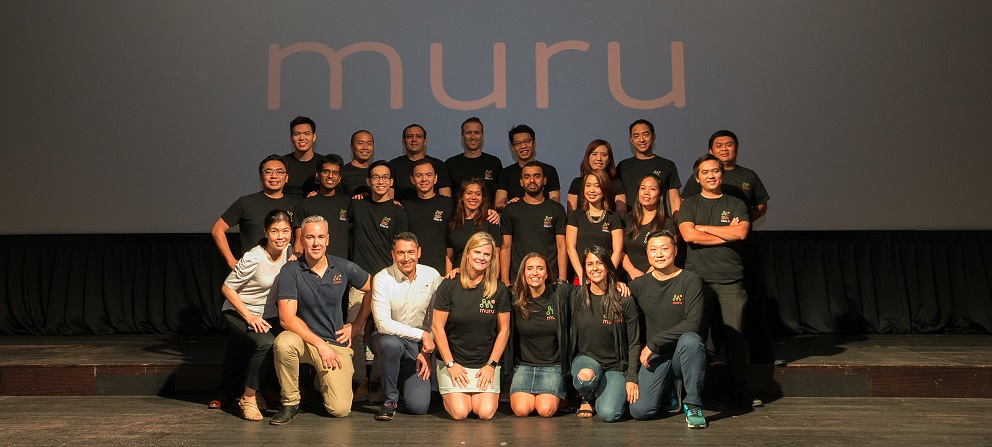This is the first of four stories I did for The Australian on why entrepreneurs are making their way to the United States’ Bay Area.
A combination of accessible capital, a huge market and a collaborative culture are why startup founders are making their way across the Pacific to Silicon Valley and San Francisco.
Despite their government’s ideas boom and an easier funding climate, Australia’s startups still see San Francisco and Silicon Valley as being the promised land. In this four part series we spoke to Aussie entrepreneurs about why they’ve made the move across the Pacific Ocean.
In a noisy coffee shop just off San Francisco’s Market Street, PixC founder Holly Cardew explains why she moved to the city. “It’s a place you fall in love with straight away – it’s the people and the attitude,” says Cardew. “You can do anything, people don’t look at you as if you’re crazy if you want to do something big.”
Wider horizons
Cardew made the relocation to San Francisco to find funding for Pixc, a photo editing service that in 2014 was one of the first group of startups accepted into Telstra’s Muru-D accelerator program. In moving to the US she found American investors have far wider horizons than Sydney’s business community.
“Investors ask ‘what’s next?’” Cardew enthused, “in Australia, you don’t even think about that. Americans tend to think a lot bigger. Australians aren’t trained to think about it.” Another aspect Cardew highlights about the Bay Area business culture is how individuals are always happy to help out, “people always ask ‘how can I help’ she says.
One of those credited by Cardew and by many of the people interviewed for this is Temando founder Carl Hartmann. In an archetypal open plan shared office in San Francisco’s Financial District Harmann explains why he’s quick to help, “I’m here today because people who were kind enough to pay it forward.”
Being there
Temando, a logistics service founded in Brisbane, was started to address the difficulties retailers had in fulfilling customers orders across Australia. Hartmann moved to the United States at the beginning of 2015 to access North American customers and to tap local capital markets. “When you talk to the SV funds it’s very hard to raise money if you aren’t here,” he says. “In Silicon Valley it’s where the action is. If you’re not here you are out of sight and out of mind.”
“It’s difficult to build those sort of relationships from the other side of the world. When you’re here, things can move along quickly because it’s easy to collaborate on things. It’s easier to work face to face. For us it makes sense to be here,” Hartmann says. “There’s a unique energy where everyone has come from all over the world.”
Jack Gonzales of location mapping service MapJam is an example of how fast things can move for companies in the Bay Area. “Last year we were approached by some of the big players who asked if we had our own map tiles,” he recalls. “We realised we had an opportunity.”
Gonzales was speaking at the somewhat chaotic San Francisco campus of 500 Startups across from the city’s Moscone Convention Center. Mapjam was accepted onto the prestigious startup investment and acceleration program last year.
A goldmine in your backyard
“You have a goldmine in your local backyard and you have to capitalise on that. Sometimes it’s really spontaneous, ‘hey can you guys come in on Friday?’ You can’t do that when you’re overseas,” Gonzales says. “Our main customers are here and I really want to conquer the backyard before I conquer the globe, just within walking distance from here there are thirty major players.”
Australia does have some advantages for startups, particularly in labor costs for skilled developers. “It’s three times more expensive to employ staff in the Bay Area,” says Affinity Live’s Geoff McQueen in explaining why he’s kept the company’s technical team in the firm’s home town of Wollongong
McQueen, who moved to San Francisco in 2011 to seek funding for his venture believes “Australia is a good place to do a minimum viable product or proof of concept” and warns budding entrepreneurs to have more “than just just a PowerPoint pitch” when they decide to make a permanent move.
In McQueen’s view it’s important to at least visit the Bay Area early in the process of developing a business. “Come over as soon as you can – even if you only have a light idea,” he says. “Anchor your visit around a conference, whatever is relevant to your target industry.”
Achieving your aims
Despite not finding gold on San Francisco’s grubby streets, most of the entrepreneurs The Australian interviewed were all happy they’d achieved their aims in moving to the US which vary from easier funding availability, access to bigger markets and a more vibrant ecosystem than those in Sydney, Melbourne or the smaller centres.
Ultimately though everyone mentions the supportive nature of the Bay Area’s startup culture, “people ask what can I help you with,” says Pixc’s Cardew. “You can do anything, people don’t look at you as if you’re crazy if you want to do something big.”

Leave a Reply